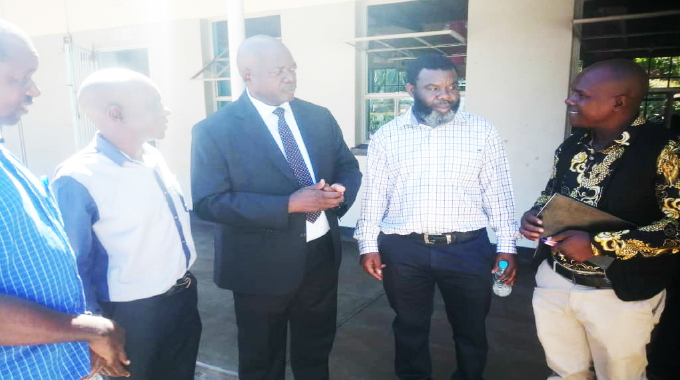Treasury to rebase growth projections

Nqobile Tshili, [email protected]
TREASURY is set to revise the country’s economic growth projections for this year, taking into account the impact of the El Nino-induced drought on agriculture, which is expected to have a knock-on effect on other sectors.
Agriculture is Zimbabwe’s main economic activity and the drought has already crippled food supplies, with the country being forced to import to boost domestic reserves.
Finance, Economic Development and Investment Promotion Minister, Professor Mthuli Ncube, said the Government is ready to respond to hunger issues and reassess the economic outlook after the release of the second crop, livestock and fisheries assessment report on agriculture.

Drought
Most parts of the country received insignificant rains this year in what development practitioners say is among the worst droughts-ever witnessed.
“This year we have a drought, the negative impact of El Nino, and naturally it is affecting our agricultural output where we are expecting negative economic growth from agriculture,” said Prof Ncube in a recent interview.
“This has implications for other sectors in terms of backward and forward linkages that the sector has with the rest of the economy.
“So, we expect slower growth. Currently we have a projection of 3,5 percent in terms of Gross Domestic Product (GDP) growth. But we will reassess at the end of June to see where we are and whether we should be making further revisions.
“But clearly we have been impacted by El Nino and as Government, we are always ready to respond to make sure that citizens are cushioned against the possibilities of hunger and ensure that no one goes hungry.”
He reiterated the Government’s commitment to continue investing in climate-proofing methods, including construction of more dams as rain-fed agriculture is no longer viable.
He said the country’s ability to produce surplus wheat shows the success made in the agriculture sector and that the Government will continue to invest in irrigation infrastructure.

Wheat
“We have successfully climate-proofed and invested in irrigation, and that is why we are now wheat self-sufficient, but we need to do more in terms of maize where we will have a deficit,” said Prof Ncube.
“When it comes to investment in irrigation, again we are going to accelerate investments now that we have the water bodies. We have to impound water. So, it’s an ongoing programme to complete dams under construction.
“We have Lake Gwayi-Shangani Dam, for example, and Tuli-Manyange in Matabeleland South, among others, and we will complete these and accelerate the irrigation aspect.”
The Treasury boss said the Government will ensure that Lake Gwayi-Shangani is completed this year as President Mnangagwa has already stated.
He said the Government remains committed to driving grassroots development, hence the deployment of devolution funds to ensure inclusive development.
From the national budget, the Treasury allocates 5 percent of the total budget towards development of communities, with each local authority receiving devolution funds.
“These devolution resources have really uplifted communities that had been left behind. We really want to make sure that no one is left behind. So, we focus on various areas, we focus on schools, clinics and health centres, water and roads so that we have the social infrastructure.
“If you look at clinics, devolution funds have done a lot. We are constructing clinics all over the place and all over the country and this is really commendable,” said Prof Ncube.
As opposed to depending on hired equipment, the minister said local authorities should use devolution funds to procure road rehabilitation infrastructure and rigs to drill boreholes.
On the development of a viable road network, Prof Ncube said more resources will be channelled towards fixing major highways with work already underway in roads such as Beitbridge-Harare-Chirundu Highway.
“We have got the Beitbridge-Bulawayo-Victoria Falls Highway, and we want to make sure that it is revamped and we are considering public-private arrangements for these roads,” he said.
“When you look at the Plumtree-Bulawayo-Harare-Mutare Highway, public-private partnerships are working very well. The road is well maintained and we have learnt from that.” —@nqotshili









Comments